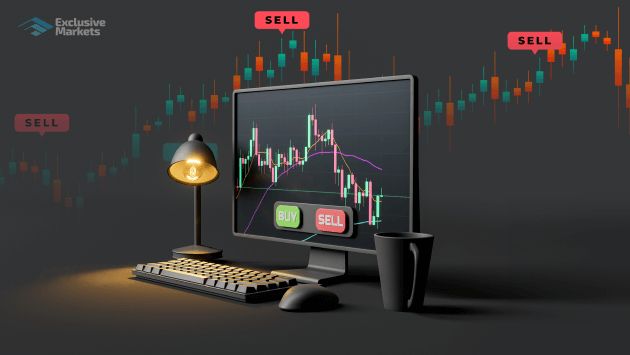What is Forex Trading?

Introduction to Forex Trading
Forex trading, also known as Foreign Exchange or FX trading, is the act of buying and selling currencies on the global financial market. It is the largest and most liquid financial market in the world, with an estimated daily trading volume of over $7 trillion. Unlike stock markets, Forex operates 24 hours a day, five days a week, providing unique opportunities for traders worldwide.
How Does Forex Trading Work?
In Forex trading, you are essentially speculating on the future value of one currency against another. Currencies are traded in pairs, such as EUR/USD (Euro/US Dollar), GBP/JPY (British Pound/Japanese Yen), or USD/JPY (US Dollar/Japanese Yen). The first currency in the pair is known as the “base currency,” and the second currency is the “quote currency.” When you buy a currency pair, you are buying the base currency and selling the quote currency, and vice versa.
For example, if you buy the EUR/USD pair, you are buying the Euro and selling the US Dollar. If the value of the Euro rises relative to the US Dollar, you can sell your position at a profit.
Why Trade Forex?
Forex trading offers several advantages, making it an attractive option for investors and traders alike:
- High Liquidity: The Forex market is the most liquid in the world, meaning you can easily buy or sell currencies without affecting their price significantly.
- 24-Hour Market Access: Forex operates continuously during the week, allowing traders from different time zones to engage at any time.
- Leverage Opportunities: Forex brokers often offer leverage, enabling you to trade larger positions with a smaller capital outlay.
- Diversification: The Forex market allows traders to diversify their investment portfolios by accessing a wide range of currency pairs and trading opportunities.
- Profit in Both Bull and Bear Markets: Forex traders can make a profit regardless of whether the market is rising or falling, through the use of long or short positions.
If you’re new to Forex trading, understanding the basics and how it works is crucial. Learn More About Forex Basics →
Who Should Trade Forex?
Forex trading is suitable for various individuals and businesses, including:
- Beginners: Those looking to explore financial markets and gain exposure to trading opportunities.
- Experienced Traders: Professionals seeking to diversify their portfolios or maximize their trading strategies.
- Businesses: Companies that deal with foreign currencies or need to manage currency risk may use Forex trading as part of their risk management strategy.
- Investors Seeking Alternative Opportunities: Investors looking for alternative investment avenues beyond stocks and bonds.
If you want to know more about who should trade Forex, check out our detailed guide on Who Can Benefit from Forex Trading? →
Currency Pairs in Forex Trading
In Forex, currencies are traded in pairs. Understanding the different types of currency pairs is essential for any trader. They are divided into three categories:
- Major Pairs: These include the most traded currencies, such as EUR/USD, GBP/USD, and USD/JPY.
- Minor Pairs: These involve less liquid currencies but still have significant trading volumes, like EUR/GBP and EUR/AUD.
- Exotic Pairs: Exotic pairs are less commonly traded and include one major currency and one currency from an emerging market, such as USD/TRY (US Dollar/Turkish Lira).
Learn more about Currency Pairs and Their Characteristics →
Key Concepts in Forex Trading
Here are some key concepts you will encounter in Forex trading:
- Pips and Spreads: A “pip” is the smallest price movement in the Forex market, while the spread is the difference between the bid (buy) and ask (sell) price. Understand Pips and Spreads →
- Leverage and Margin: Leverage allows traders to control a larger position with a smaller amount of capital. Margin refers to the amount of money a trader needs to open a leveraged position. Learn About Leverage and Margin →
- Market Sessions: The Forex market is open 24 hours a day, but it is divided into different trading sessions based on the major financial centers: the Sydney, Tokyo, London, and New York sessions. The overlap of these sessions typically results in higher market volatility and trading opportunities. Explore Forex Market Sessions →
- Technical and Fundamental Analysis: Traders often use technical analysis (charting and indicators) and fundamental analysis (economic reports, news events) to make informed trading decisions. Dive Deeper into Technical and Fundamental Analysis →
Advantages and Risks of Forex Trading
Advantages:
- Accessibility: Anyone can start trading Forex with a relatively small amount of capital.
- Potential for High Returns: The high leverage in Forex trading can lead to substantial profits.
- Flexibility: Forex trading offers flexibility in terms of time and investment amounts, suitable for both part-time and full-time traders.
Risks:
- High Risk: Leverage can lead to substantial losses if the market moves against you.
- Market Volatility: The Forex market can be highly volatile, influenced by economic data, geopolitical events, and market sentiment.
- Requires Knowledge and Skills: Forex trading requires a solid understanding of market dynamics, risk management, and trading strategies.
Starting Your Forex Trading Journey
Before diving into the world of Forex trading, it’s essential to educate yourself and understand the market’s nuances. Here are some tips to get started:
- Choose a Reliable Forex Broker: Select a broker that offers a secure platform, low spreads, and reliable customer support. Find the Best Forex Brokers →
- Learn the Basics: Understand the core concepts, such as currency pairs, pips, spreads, leverage, and trading strategies. Learn More About Forex Basics →
- Practice with a Demo Account: Many brokers offer demo accounts, allowing you to practice trading with virtual funds before risking real money.
- Develop a Trading Plan: Establish a clear trading plan with defined goals, risk management strategies, and trade execution rules.
- Start Small: Begin with small positions to manage risk while gaining experience in real market conditions.
Conclusion
Forex trading offers exciting opportunities for both beginners and experienced traders. With the right knowledge, tools, and strategies, it can be a profitable endeavor. However, it is important to understand the risks involved and approach it with a disciplined mindset.
For more information on different aspects of Forex trading, such as advanced trading strategies, market analysis, or risk management, check out our other pages:
Happy Trading!





